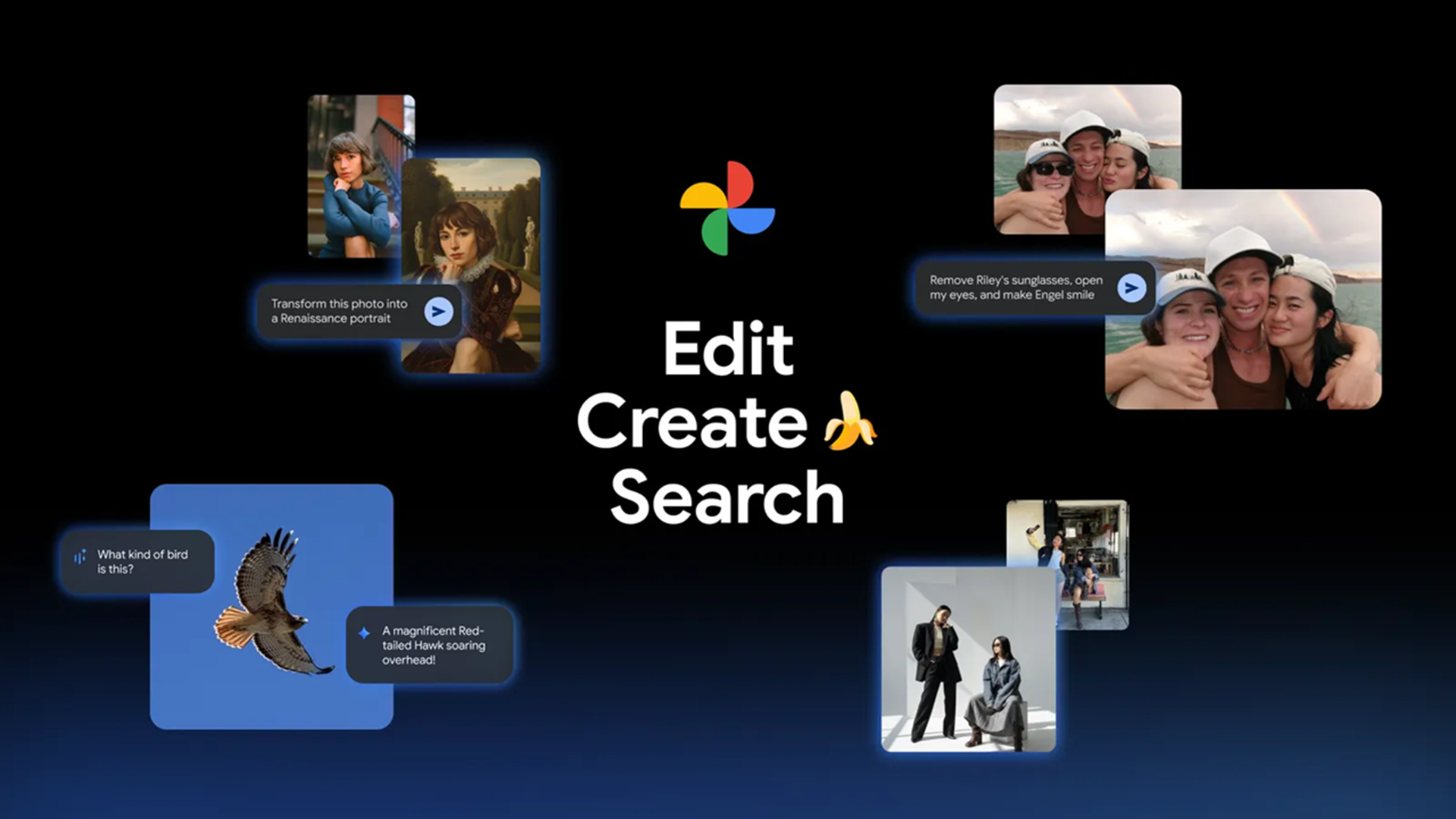Blinked in a photo? No problem – Google Photos can now fix that, and lots more, using AI
Your photo history enables personalized corrections to people in your pictures.

Sign up for breaking news, reviews, opinion, top tech deals, and more.
You are now subscribed
Your newsletter sign-up was successful
- Google Photos' new AI tool can now make personalized fixes to photos using Gemini’s Nano Banana AI image model
- The AI relies on other photos of you and your friends to realistically open eyes and add smiles to photos
- The update also expands AI editing with simple language and new AI style templates
Google Photos has a very personal new AI image editor that can precisely edit the faces of you and people you know in your photos.
Using Google's Nano Banana model for AI image generation and your private face groups, the app can basically edit the photos using other photos of the same people. You can ask it to open your eyes in a group photo, erase someone’s sunglasses, or fix a forced grimace into a real smile.
It's a notable leap in AI photo editing. well beyond filters and lighting tweaks without straying into wildly inaccurate imaginings of people's faces. And because it uses your own face groups, the automatically sorted clusters in Google Photos that tag people by appearance, the edits are not just generically plausible; they look very real.
The composite fixes are drawn from your photo library’s internal understanding of each person’s appearance, habits, and history.
Google had been promising to bring Nano Banana to Photos for several weeks after incorporating the model into Search and NotebookLM.. The model is fueling many of the Google Photos AI augmentations this week, including the Gemini-powered Ask button to answer any questions you might have about the photos you've taken and possibly forgotten about.
The effect is subtle, but transformative. You don’t need to know anything about image masks, layer blending, or clone-stamp tools. You just tell the app what you want – for example "Make Sarah smile" – and it gets to work. That’s a big deal for casual users who don’t want to learn a complicated image editor or spend 15 minutes retouching a vacation photo from years ago.
AI image enhancement
The personalization doesn’t stop there. In the same update, Google introduced new AI-generated style templates that build on your own gallery. If your account’s full of beach vacations and dog park selfies, you might get a prompt like “make me a cartoon with my dog" or “doodle my name in the sand.” These templates remove the need to rewrite prompts you might want to reuse in favor of a curated set of suggestions tuned to your style and behavior.
Sign up for breaking news, reviews, opinion, top tech deals, and more.
Combined with the Ask button, which answers queries and provides insight on your photos individually and in groups, the updates make Google Photos a much more interactive experience. with a degree of personal information and editing options previously impossible without professional tools and hours of editing.
The personalized face editing is definitely a major highlight of Google's recent efforts. That said, personalization means accepting a privacy tradeoff. But, since the edits are powered by face groups that you’ve already approved in your account, the process should remain within your account, without training external models.
Still, the very idea that your own photo history is being used as a reference for AI-edited versions of your face might make some people raise an eyebrow, or ask the app to raise it for them.
Follow TechRadar on Google News and add us as a preferred source to get our expert news, reviews, and opinion in your feeds. Make sure to click the Follow button!
And of course you can also follow TechRadar on TikTok for news, reviews, unboxings in video form, and get regular updates from us on WhatsApp too.

➡️ Read our full guide to the best business laptops
1. Best overall:
Dell Precision 5690
2. Best on a budget:
Acer Aspire 5
3. Best MacBook:
Apple MacBook Pro 14-inch (M4)

Eric Hal Schwartz is a freelance writer for TechRadar with more than 15 years of experience covering the intersection of the world and technology. For the last five years, he served as head writer for Voicebot.ai and was on the leading edge of reporting on generative AI and large language models. He's since become an expert on the products of generative AI models, such as OpenAI’s ChatGPT, Anthropic’s Claude, Google Gemini, and every other synthetic media tool. His experience runs the gamut of media, including print, digital, broadcast, and live events. Now, he's continuing to tell the stories people want and need to hear about the rapidly evolving AI space and its impact on their lives. Eric is based in New York City.
You must confirm your public display name before commenting
Please logout and then login again, you will then be prompted to enter your display name.